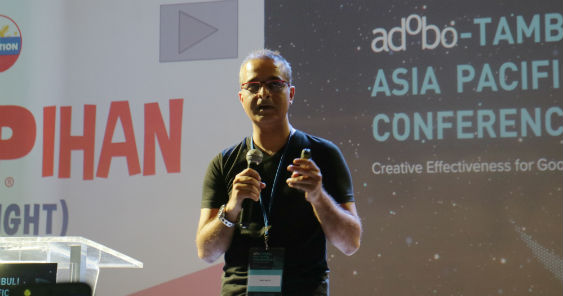MAKATI CITY – A Chief Marketing Officer’s (CMO) position is hard nowadays as many variables and factors such as technology and shifting consumer behaviors are becoming more and more out of the control of brands. If this is the case, how relevant still is the CMO? Mullenlowe Lintas Group India Group CMO & President, Marketing Services Vikas Mehta talked about how marketers can re-invent the role of marketing today.
Due to the many pressures of the marketing environment, CMOs have one of the most stressful jobs in the organization. Quoting from a study by executive search firm Stuart Spencer, Mehta relayed that the median tenure of said position is just 27 months, making it the shortest among C-level executives. According further to Mehta, up to 80% of CMOs plan to leave their companies within the next three years. Even Coca-Cola has retired the position altogether. And so the debate has been going on whether the CMO position should still be retained in organisations.
Yet, Mehta gave four principles to guide today’s marketers and CMOs. First is to remember that brands need to prioritize good service above selling goods and services. The consumers of today do not only look simply at the actual product or service offered by a brand or company. They need to have a delightful experience, and they expect a seamless omni-channel experience.
The second is to stay true to the brand’s purpose, because messages change, but values are timeless. With the speed of digital media today as well as the ever-shifting environment, the shelf-life of messages from brands get shorter, and thus, these need to change and adapt all the time. So how will consumers identify with brands? Companies and brands should always promote and act on their values.
As an example, Mehta showed an ad made by his agency for Havells. As a smaller brand compared with the likes of Philips and other international brands, Havells had to strongly differentiate itself. Instead of directly talking about its products, Havells zeroed in on the users by taking on women’s agenda. Their message was that their appliances can and should be used by any individual, whether male or female.
The next principle Mehta emphasised is to let people speak for themselves. Before the rise of social and digital media, broadcasters, brands, and companies controlled mainstream media. “We championed philosophies, mindsets, beliefs, as if we as brands were speaking on behalf of the people we are representing,” he said. Brands should move away from being “owners of public behaviour” to being “facilitators of a place where people can express themselves”.
He identified MullenLowe Philippines’ Gulpihan campaign for 7-Eleven which gave consumers a chance to “cast” their vote by choosing their candidate via specially made Gulp cups. The effort let Filipinos talk about politics and national issues. At the same time, the brand was clear on facilitating the conversation instead of having it as a representation of actual public opinion.
Mehta’s next principle is to “make promises as a brand you can keep as a company.” Brands must be conscious, mindful, and deliberate towards what they say about their beliefs and values. Mehta said, “if you don’t practice what you preach, you will be caught on the wrong foot.” He then presented the campaign of Nomad Skateboards in Spain which aimed to elevate the stature of skateboarding and push for it to be included in the Tokyo Olympics. According to Mehta, Nomad Skateboards is a good example of a brand living by its own values.
Mehta further explained, as owners and guardians of the brand, CMOs can shape the image of both the brand and the company. Mehta said that marketing can become the “operating system” of the organization which makes sure that it “practices what it preaches and profess, confess, and live” its values.
According to Mehta, all C-level executives of the company must have just one job and that is to work towards satisfying consumers and good customer experience. As a last reminder, he said, “as long as marketing can give a delightful consumer experience, chances are you won’t worry about being relevant.”









